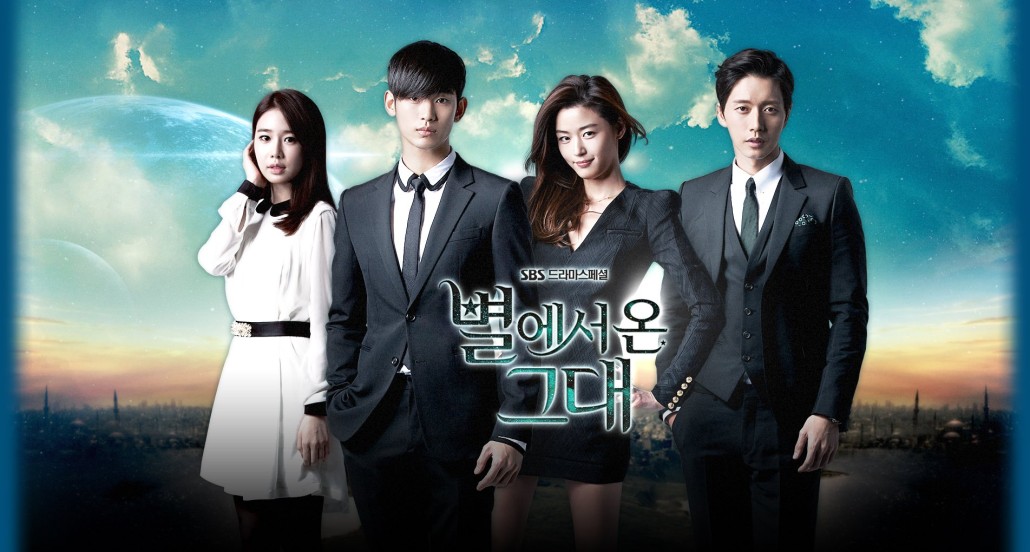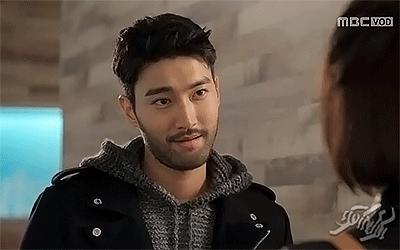Here’s Why The Wall Street Journal Is Wrong About K-Drama Fans
 “A study by Seoul National University researchers in 2013 found that loyal fans of Korean soap operas tend to be less educated, and therefore more susceptible to the genre’s unrealistic plot twists, which include old standbys like the car accident-induced bout of amnesia or the twins who are separated at birth,” reads a recent Wall Street Journal (WSJ) article titled “Psy-chology 101: Academics Put Spotlight on Korean Pop Culture” by Jonathan Cheng. It was published on November 1 and covered the academic study of Korean pop culture including, but not limited to, the Hallyu (Korean Wave) phenomenon.
“A study by Seoul National University researchers in 2013 found that loyal fans of Korean soap operas tend to be less educated, and therefore more susceptible to the genre’s unrealistic plot twists, which include old standbys like the car accident-induced bout of amnesia or the twins who are separated at birth,” reads a recent Wall Street Journal (WSJ) article titled “Psy-chology 101: Academics Put Spotlight on Korean Pop Culture” by Jonathan Cheng. It was published on November 1 and covered the academic study of Korean pop culture including, but not limited to, the Hallyu (Korean Wave) phenomenon.
Having studied Hallyu in both American and Korean universities, I expected to not really come away with any particular feeling other than elation about the fact that my field of study was being highlighted in one of the most respected newspapers in the world. So imagine my surprise at being insulted as “less educated” because I am a “loyal fan” of Korean dramas, or what the WSJ calls, “soap operas.”
I’ve been watching them since I was in high school, throughout college and studying abroad, and now as a post-grad. But the Wall Street Journal quotes a study then lets it hang as fact without further discussing it at all throughout the rest of the article, insinuating that I’m uneducated because I’m currently binge watching “She Was Pretty,” a 16-episode show about a childhood friends who don’t recognize one another after they’ve been separated for nearly 20 years.
Also on KultScene: K-Dramas as a Window into the Realities of Korean Society
I spent a few minutes looking up this study, only to find a Wall Street Journal article from 2013 titled “South Korean Soap Operas: Just Lowbrow Fun?” that first introduced the survey to WSJ audiences. The survey they based their research on was conducted in China and had a small sample size, with only 400 Chinese candidates between the ages of 20-60 answering about their television watching preferences.
However, there are multiple issues with this survey and the Wall Street Journal’s recurring use of the results determined by Seoul National University staff in 2013 to insult K-drama fans. In fact, more than just a few people are upset by being fit into this neat, uneducated box; Chinese K-drama fans took offense with the survey, and protested the results in 2014.
The international use of a survey that utilizes such a limited sample size to represent the millions of Korean-drama fans around the world belittles the wide range of international popularity dramas have. Similarly, the point of the survey was unclear. Were the researchers trying to find out how popular Korean dramas were in China or were they trying to see international viewing trends among Chinese nationals? The difference may seem minimal, but the WSJ does not offer readers any further information about the intention of the survey or the type of questions posed to surveyees that may shape their responses.
Many Chinese students study abroad in the United States because English is important and studying abroad is perceived as something elite and a way up in the business world (Korea is similar). It seems far more likely that highly educated people in China would pick American, English-language television over Korean shows. Of course they would. Why would any educated person have incentive to pick Korean dramas, which are similar to Chinese dramas in all but production value and language, over the American, Hollywood productions?
Most of China, actually. The Seoul National University’s results don’t seem accurate anymore, since Korean television shows are immensely popular in China today. In 2014, branches of the Chinese government met to question why Korean dramas are so popular following the wide spread success of the Korean drama “My Love From The Stars,” even as Chinese cultural products were lacking local and international appeal. In fact, members of the government considered K-dramas as such a threat to China’s cultural prowess that one called the Korean soap operas “the distillation of traditional Chinese culture.”
Regardless of perceived flaws in the survey itself, when it comes down to it it is highly problematic that the WSJ is continuously implying that Korean dramas are lowbrow based on a (limited) study that featured a handful of highly educated people dismissing Korean dramas in favor of “The Big Bang Theory,” a show about a sexy, uneducated woman who manages relationships with four highly intellectual, socially awkward nerds.
That’s how it works in California, right?
Putting the realm of reality on hold for a moment, “The Big Bang Theory” has just as many intellectual issues as Korean dramas, and maybe even more. Korean dramas are created in the imaginary Disney-esque world of Cinderellas, Prince Charmings, and Evil Stepmothers, where there are usually happy endings for all. In comparison, “The Big Bang Theory” is very much set in a stereotypical version of this world, where the blondes are dumb, the scientists have few social graces, the Jewish character (Wolowitz) is small and often thought of as “disgusting” by the other characters, and the Indian character fits into longstanding views of the effeminate Asian: Raj’s Indian background is not only used for jokes, but he fits into the stereotypical idea of the emasculated Asian male. Raj is always somewhere between straight, gay, and asexual depending on each episode, and never the most powerful person in the room but almost always the subordinate in every situation on “The Big Bang Theory.”
Also on KultScene: 4 K-Dramas That Need To Be On Your ‘To Watch’ List Right Now
Perhaps the 400 Chinese nationals who were surveyed missed out on the nuances of American (stereotype promoting) humor, but if they pick racist comedy over unrealistic drama plots, I have to question their emotional intelligence and legitimacy as the yardstick for all fans of internationally popular television shows. (That does not mean that I think anyone who is a fan of “The Big Bang Theory” is racist. The show perpetuates stereotypes, and I am questioning the survey’s validity as an accurate reflection of K-drama viewers around the world).
Sure, Korean dramas are dramatic, silly, pretty ridiculous, and nowhere near the pinnacle of fine arts. But the audience is not innately any dumber than any other fandom. Saying that a person is “less educated” because of their preferred form of entertainment, their preferred form of escape from the banality of everyday life, is a bit absurd and honestly offensive.
Watching K-dramas requires putting your grasp of reality on hold. I don’t believe that the unrealistic situations can occur, but I still laugh, gasp, and cry in a way that I don’t when I watch many other television shows. Why should one preferred form of storytelling make the audience innately less educated than others? It doesn’t, and quoting one, small survey time and time again does not change the fact that K-dramas are watched by people from all walks of life.
Korean dramas are watched in South Korea as prime time television. Yes, they’re soap operas. No, not every person in South Korea is watching them, but they are immensely popular. South Korea has one of the most literate, educated populations in the world with more than 80 percent of adults going on to university, according to The Economist. But you say “loyal fans of Korean soap operas tend to be less educated”?
Outside of South Korea, maybe you can suggest that the audience is less educated, but that’s not remotely true. According to 2013 statistics from DramaFever, one of the most popular sites for international audiences to watch Korean dramas, 53 percent of their audience had college or grad school education in 2013. In 2015, DramaFever reaches around 20 million viewers. Viki, another site where many people watch Korean dramas, goes above just having educated viewers and actually has audience members build the subtitles, including translation and editing, for entirely free.
But, after all, these are the “less educated” fans of Korean dramas.
What do you think about the Wall Street Journal’s use of this survey? How do you feel about Korean dramas? Share your picks in the comment section below and be sure to subscribe to the site and follow us on Facebook, Twitter, Instagram, and Tumblr to keep up with all of our posts.

